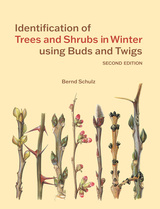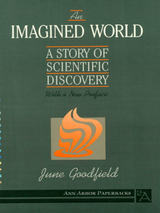4 books about Early Church
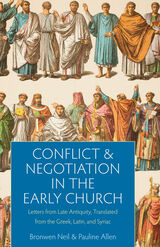
Conflict and Negotiation in the Early Church
Letters from Late Antiquity, Translated from the Greek, Latin, and Syriac
Bronwen Neil
Catholic University of America Press, 2020
Recent decades have seen great progress made in scholarship towards understanding the major civic role played by bishops of the eastern and western churches of Late Antiquity. Brownen Neil and Pauline Allen explore and evaluate one aspect of this civic role, the negotiation of religious conflict.
Conflict and Negotiation in the Early Church focuses on the period 500 to 700 CE, one of the least documented periods in the history of the church, but also one of the most formative, whose conflicts resonate still in contemporary Christian communities, especially in the Middle East.
To uncover the hidden history of this period and its theological controversies, Neil and Allen have tapped a little known written source, the letters that were exchanged by bishops, emperors and other civic leaders of the sixth and seventh centuries. This was an era of crisis for the Byzantine empire, at war first with Persia, and then with the Arab forces united under the new faith of Islam. Official letters were used by the churches of Rome and Constantinople to pursue and defend their claims to universal and local authority, a constant source of conflict. As well as the east-west struggle, Christological disagreements with the Syrian church demanded increasing attention from the episcopal and imperial rulers in Constantinople, even as Rome set itself adrift and looked to the West for new allies.
From this troubled period, 1500 letters survive in Greek, Latin, and Syriac. With translations of a number of these, many rendered into English for the first time, Conflict and Negotiation in the Early Church examines the ways in which diplomatic relations between churches were developed, and in some cases hindered or even permanently ruptured, through letter-exchange at the end of Late Antiquity.
Conflict and Negotiation in the Early Church focuses on the period 500 to 700 CE, one of the least documented periods in the history of the church, but also one of the most formative, whose conflicts resonate still in contemporary Christian communities, especially in the Middle East.
To uncover the hidden history of this period and its theological controversies, Neil and Allen have tapped a little known written source, the letters that were exchanged by bishops, emperors and other civic leaders of the sixth and seventh centuries. This was an era of crisis for the Byzantine empire, at war first with Persia, and then with the Arab forces united under the new faith of Islam. Official letters were used by the churches of Rome and Constantinople to pursue and defend their claims to universal and local authority, a constant source of conflict. As well as the east-west struggle, Christological disagreements with the Syrian church demanded increasing attention from the episcopal and imperial rulers in Constantinople, even as Rome set itself adrift and looked to the West for new allies.
From this troubled period, 1500 letters survive in Greek, Latin, and Syriac. With translations of a number of these, many rendered into English for the first time, Conflict and Negotiation in the Early Church examines the ways in which diplomatic relations between churches were developed, and in some cases hindered or even permanently ruptured, through letter-exchange at the end of Late Antiquity.
[more]

Mysteries of the Lord's Prayer
Wisdom from the Early Church
John Gavin
Catholic University of America Press, 2021
The Lord’s Prayer contains mysteries generally overlooked by most Christians. For the Fathers of the Church, such mysteries or “difficulties”—many of which continue to puzzle modern scholars—marked divinely inspired points for prayer and reflection. Saints Cyprian of Carthage, Augustine of Hippo, Peter Chrysologus, Maximus the Confessor and others grappled with the hidden meanings behind these questions and the fruits of their efforts can inspire contemporary readers.
In this volume John Gavin, SJ explores eight mysteries of the Lord’s prayer in light of the early Church’s wisdom: How can human beings call God “Father”? Where is God the Father? How can God grow in holiness? Was there ever a time when God did not rule? Are there limitations to God’s will? Why should we seek bread? Can we make a deal with God? Does God tempt us? Without ignoring the insights of contemporary exegesis, this volume demonstrates that the responses of the Fathers to these questions have continuing relevance. Not only did they understand the issues surrounding linguistic, textual, and theological difficulties, but they also grasped the nuances of Christ’s words as illuminated by the scriptures as a whole. They provide an interpretation that challenges the mind and transforms the heart.
Mysteries of the Lord's Prayer offers the general reader, as well as scholars, a chance to rediscover a prayer that unites Christians throughout the world. It also includes appendices to aid those who wish to explore the Fathers’ writings on their own for a deeper encounter with the wisdom of the early Church.
[more]
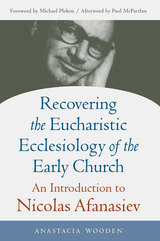
Recovering the Eucharistic Ecclesiology of the Early Church
An Introduction to Nicolas Afanasiev
Anastacia Wooden
Catholic University of America Press, 2025
The first theologian who spoke of eucharistic ecclesiology was the Russian Orthodox church historian and canonist Nicholas Afanasiev (1893-1966). He claimed to have re-discovered and systematized the original ecclesiology of the early church, which he called “eucharistic.” Since then, the eucharistic ecclesiology crossed confessional borders and shaped the theological discussion on the nature of the church. Many authors of different Christian confessions developed Afanasiev’s basic intuition while proposing a variety of their own understandings of the “eucharistic nature” of the church: from Orthodox theologians like John Zizioulas and John Romanides to Catholic theologians like J.-M. Tillard and Joseph Ratzinger. Ironically, the details of Afanasiev’s own ecclesiological system remain largely unknown. The aim of this book is to formulate a comprehensive view of Afanasiev’s ecclesiological vision and of its significance for contemporary ecclesial life in two parts.
It is Anastacia Wooden’s conviction that the prevailing “stereotypical” view of Afanasiev’s ecclesiology is suffering from misapprehension of his thought. Therefore, Part one addresses the issues that historically complicated understanding of Afanasiev’s ecclesiology. It will provide historical, theological, and biographical context of Afanasiev’s scholarship by presenting keys to understanding of his eucharistic ecclesiology.
In the second part the book provides a synthesis of Afanasiev’s total ecclesiological vision as well as systematic presentation of six specific ecclesiological issues. It demonstrates how Afanasiev’s methodological assumption that ecclesiology can serve as a tool to make sense of the historical data on the life of the church led to his realization that the early church had an operative ecclesiology which placed the exercise of royal priesthood in the Eucharist as the starting point of the ecclesial structure. In each chapter of the second part, this book provides reflections on the contemporary relevance of Afanasiev’s work. In the current crises of leadership in the Catholic Church (as well as other Christian churches) it may prevent the adoption of arbitrary forms of lay participation in the church governance by reminding church leaders that a theologically meaningful increase of lay participation should always be framed in terms of the increased participation of local churches.
[more]
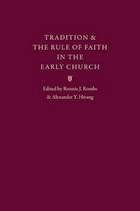
Tradition and the Rule of Faith in the Early Church
Ronnie J. Rombs
Catholic University of America Press, 2011
Tradition and the rule of faith are particularly apt themes for this collection of studies. The essays are written in honor of Joseph T. Lienhard, S.J., renowned American patristic scholar whose research and writings have focused on this particular theme.
[more]
READERS
Browse our collection.
PUBLISHERS
See BiblioVault's publisher services.
STUDENT SERVICES
Files for college accessibility offices.
UChicago Accessibility Resources
home | accessibility | search | about | contact us
BiblioVault ® 2001 - 2025
The University of Chicago Press



